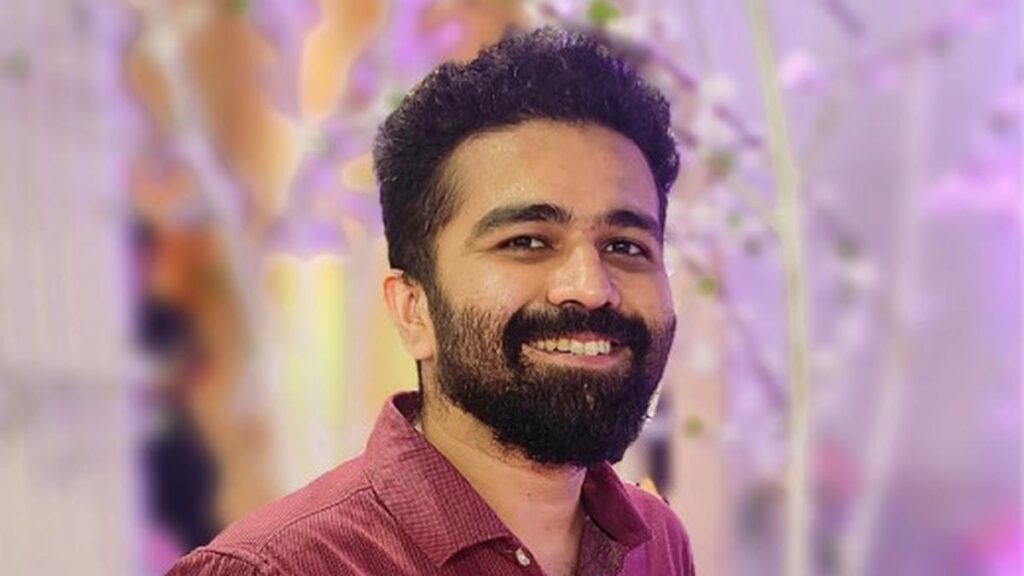Indian Student At Cambridge Solves Ancient Sanskrit Puzzle
Dec 15, 2022 | Pratirodh Bureau
Rishi Rajpopat made the breakthrough by decoding a rule taught by Panini, known as the father of linguistics (Photo: University of Cambridge)
(Source: PTI)
A grammatical problem which has defeated Sanskrit scholars since the 5th Century BC has finally been solved by an Indian PhD student at the University of Cambridge, it emerged as his thesis was published on Thursday.
Rishi Rajpopat made the breakthrough by decoding a rule taught by Panini, known as the father of linguistics, and which is now encapsulated in his thesis entitled ‘In Panini, We Trust: Discovering the Algorithm for Rule Conflict Resolution in the Astadhyayi’.
According to the university, leading Sanskrit experts have described Rajpopat’s discovery as “revolutionary” and it could now mean that Panini’s grammar can also be taught to computers for the first time.
“I had a eureka moment in Cambridge,” recalls Rajpopat.
“After nine months trying to crack this problem, I was almost ready to quit, I was getting nowhere. So, I closed the books for a month and just enjoyed the summer, swimming, cycling, cooking, praying and meditating. Then, begrudgingly I went back to work, and, within minutes, as I turned the pages, these patterns started emerging, and it all started to make sense. There was a lot more work to do but I’d found the biggest part of the puzzle,” said the 27-year-old scholar.
Over the next few weeks, he was so excited that he couldn’t sleep and would spend hours in the library, including in the middle of the night, to check what he’d found and solve related problems. It would take another two and half years before he would get to the finish line.
“Panini had an extraordinary mind and he built a machine unrivalled in human history. He didn’t expect us to add new ideas to his rules. The more we fiddle with Panini’s grammar, the more it eludes us,” says Rajpopat.
The 2,500-year-old algorithm decoded by him makes it possible, for the first time, to accurately use Panini’s so-called “language machine”.
Rajpopat’s discovery makes it possible to “derive” any Sanskrit word, to construct millions of grammatically correct words, using Panini’s revered language machine, which is widely considered to be one of the greatest intellectual achievements in history.
Panini’s system – 4,000 rules detailed in his renowned work, the Astadhyayi, which is thought to have been written around 500 BC – is meant to work like a machine.
Feed in the base and suffix of a word and it should turn them into grammatically correct words and sentences through a step-by-step process.
Until now, however, there has been a big problem. Often, two or more of Panini’s rules are simultaneously applicable at the same step leaving scholars to agonise over which one to choose. Solving so-called “rule conflicts”, which affect millions of Sanskrit words including certain forms of “mantra” and “guru”, requires an algorithm. Rajpopat’s research shows that Panini’s so-called language machine is also self-sufficient.
“My student Rishi has cracked it – he has found an extraordinarily elegant solution to a problem which has perplexed scholars for centuries. This discovery will revolutionise the study of Sanskrit at a time when interest in the language is on the rise,” said Professor Vincenzo Vergiani, Sanskrit professor and Rajpopat’s PhD supervisor.
Six months before Rajpopat made his discovery, Professor Vergiani gave him some prescient advice: “If the solution is complicated, you are probably wrong.” A major implication of Rajpopat’s discovery is that now there is the algorithm that runs Panini’s grammar, it could potentially teach this grammar to computers.
“Computer scientists working on Natural Language Processing gave up on rule-based approaches over 50 years ago. So teaching computers how to combine the speaker’s intention with Panini’s rule-based grammar to produce human speech would be a major milestone in the history of human interaction with machines, as well as in India’s intellectual history,” said Rajpopat.
Sanskrit is an ancient and classical Indo-European language from South Asia. While only spoken in India by an estimated 25,000 people today, it has influenced many other languages and cultures around the world.
“Some of the most ancient wisdom of India has been produced in Sanskrit and we still don’t fully understand what our ancestors achieved. We’ve often been led to believe that we’re not important, that we haven’t brought enough to the table. I hope this discovery will infuse students in India with confidence, pride, and hope that they too can achieve great things,” added Rajpopat.
